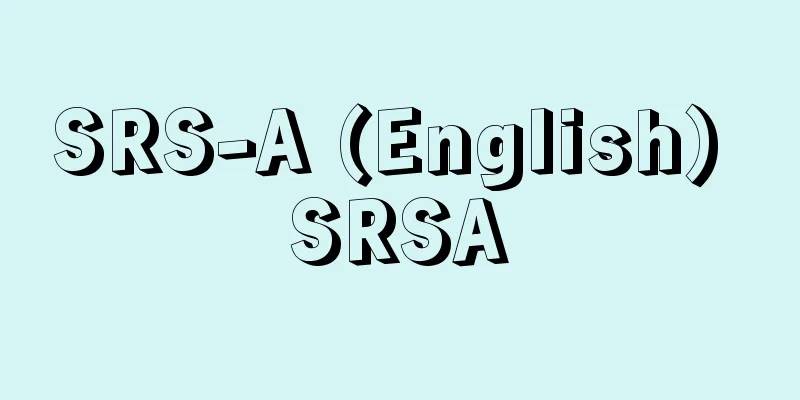Control of the sea

|
The ability or state of being able to freely and exclusively use the sea areas necessary for one's own country. Unlike land, the sea is a "vast common" (Mahan) that cannot be occupied or permanently controlled, so in order to secure one's own sea routes and prevent enemy countries from using them, it is essential to control a certain area for a necessary period of time. The Greek saying "He who controls the waves controls the world" was already there, and in the British Age of Discovery, the gentleman pirate Sir Walter Raleigh preached the significance of sea control by saying "He who controls the sea controls commerce and controls the world." However, it was not until 1890, when American A. T. Mahan published The Influence of Sea Power Upon History, in which he demonstrated the causal relationship between the rise of nations and the establishment of sea control, that the outcome of sea control came to be regarded as one of the decisive factors in international politics. Mahan's doctrine crystallized into the idea of great navalism, which states that "naval ensigns should precede and guide merchant ensigns," and was introduced into the naval policies of various nations in the first half of the 20th century in the form of the idea of big ships, big guns, and decisive battle fleets. However, the era in which control of the oceans could be obtained through decisive battles on the seas ended with the Battle of Tsushima, and thereafter, with the advent of submarines and aircraft, the significance and scope of sea control gradually became limited and temporary. Furthermore, in military strategies after World War II, strategic nuclear weapons were loaded onto submarines and moved to the sea to target the capitals of enemy countries, and naval battles became more complex, including missiles and electronic warfare, so that control of the sea in the classical sense is hardly applicable today. [Tetsuo Maeda] Source: Shogakukan Encyclopedia Nipponica About Encyclopedia Nipponica Information | Legend |
|
自国にとって必要な海域を自由かつ排他的に使用しうる能力もしくは状態。海洋は陸地と違って占領することも常続的支配もできない「広大な共有地」(マハン)なので自国の海上交通路を確保し、敵国の使用を妨げるには、一定の海域を必要な期間管制することが不可欠になる。ギリシア時代すでに「波濤(はとう)を制するものは世界を制す」のことばがあり、大航海時代のイギリスでは海賊紳士ウォルター・ローリー卿(きょう)が「海を支配するものは通商を支配し世界を支配する」と制海の意義を説いているが、制海権の帰趨(きすう)が国際政治の決定要素の一つとみなされるようになったのは、1890年にアメリカ人A・T・マハンが『海上権力史論』The influence of sea power upon historyを発表し、国家の興隆と制海権確立との因果関係を論証してからのことである。マハンの教義は「軍艦旗は商船旗に先行しその嚮導(きょうどう)者となるべし」という大海軍主義に結晶し、20世紀前半の列国の海軍政策に大艦巨砲と決戦艦隊思想の形で持ち込まれた。しかし洋上決戦によって海洋支配が獲得できた時代は日本海海戦をもって終わり、以後は潜水艦や航空機の登場で制海の意義と範囲はしだいに限定的、一過的なものに縮小されていった。さらに第二次世界大戦後の軍事戦略にあっては、戦略核兵器が潜水艦に搭載されて海洋に移動し、敵国の首都にねらいをつけるという事態が生じたほか、海軍戦闘もミサイルや電子戦を含む複雑なものに変化したため、古典的意味での制海権は今日ほとんど通用しなくなっている。 [前田哲男] 出典 小学館 日本大百科全書(ニッポニカ)日本大百科全書(ニッポニカ)について 情報 | 凡例 |
Recommend
variety
…After graduating from the Graduate School of Mat...
Statue - Dazo
Cracks that appear when a crystal face is poked ha...
Parish tax - kyokuzei
…In the center of a parish, that is, in the cente...
Daido Law - Daido Law
A taxation and financial system implemented in th...
Wiesner, J. von
…However, the term Waarenlehre was forgotten for ...
Taichi - Taiitsu
In ancient Chinese thought, it is also written as...
Financial oligarchy
... "The accumulation of production, the mon...
Bedwetting - Bedwetting
Among enuresis, which is when you urinate unconsc...
Hounsfield, GN (English spelling) HounsfieldGN
…It is also called a CT scan. CT was developed in...
Sugawara Party - Kanketo
The main ones were Sara Manor in the Jingo-ji Tem...
Mizunira - Mizura
This perennial, bright green, soft aquatic plant g...
Taima Mandala Origin
A picture scroll. Two volumes. Colored paper. Made...
River mouth - Kako
A Yao Autonomous County in the southeastern tip o...
"The Ainu People and Their Tales" - Ainujin sono setsuwa
…He also established the Batchelor School and con...
EXOSA - EXOSA
...As of early 1983, the only two X-ray astronomy...









